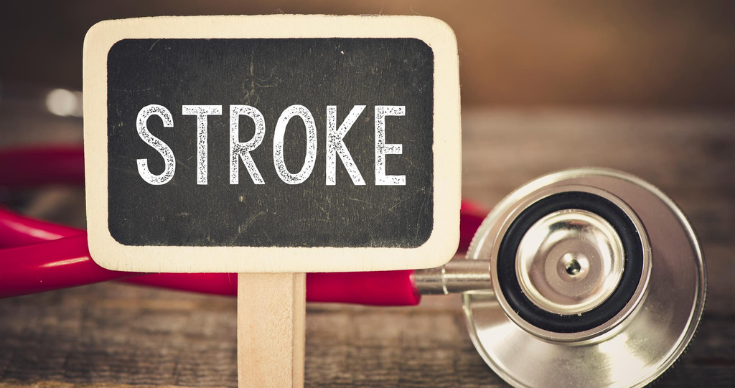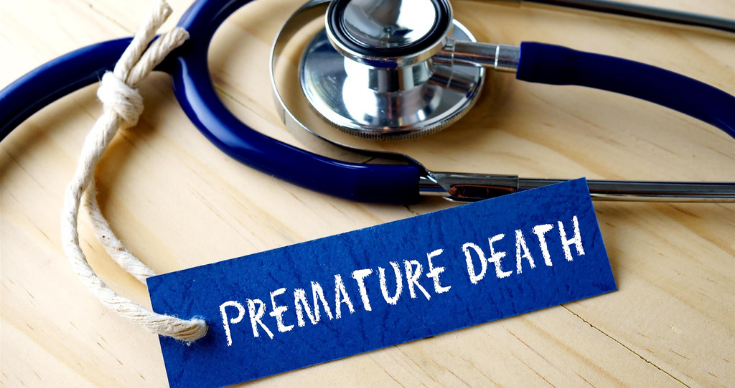All You Need To Know About Stroke
A medical emergency can happen any day, any time, with or without any warning signs. The most common medical emergencies in Kolkata are a heart attack, stroke, cardiac arrest and road accidents. Often people assume heart attack and stroke to be the same thing, but they are not. Let’s understand some crucial aspects of stroke in brief.
What Is a Stroke?
Stroke is a medical emergency which occurs when blood flow to the brain stops and as a result, the brain cells begin to die. A heart attack is a similar medical emergency in which the supply of blood to the heart stops.
There are 3 kinds of stroke, namely
- Ischemic Stroke – When an artery is blocked
- Hemorrhagic Stroke – When a blood vessel is ruptured
- Mini Stroke (Transient Ischemic Attack) – When a blood vessel is damaged temporarily
Though a mini-stroke doesn’t have any long term effect on health for most people, some patients are left with some disability for life. A mini-stroke also uplifts the risks of having a stroke in the future, significantly.
What Are The Symptoms Of A Stroke?
As already mentioned, stroke is a medical emergency and during stroke every second count. Thus it is crucial to be able to identify stroke on time. But identifying stroke can be challenging for people in general. In this regard, we all should be aware of a simple acronym FAST. So, if you suspect anyone to have a stroke, check the following.
- Face Dropping – Ask them to smile to check the facial muscles. If you observe one side of the face to be dropping or if the smile appears to be uneven, it might indicate a stroke.
- Arm Weakness – Ask them to lift both arms and see if they can. Also, check if they complain of numbness in one arm.
- Speech Difficulty – Ask them to check how they respond and see if their speech seems slur or abnormal or if they are able to understand your command.
- Time To Call Ambulance – If any of the above-mentioned symptoms are present, don’t hesitate and call the ambulance immediately.
Apart from these obvious symptoms of a stroke, there are few other minor symptoms as well. These include-
- Severe, sudden headaches
- Blurry vision or difficulty focusing on one/both eyes
- Paralysis/numbness/weakness in body part/s
- Trouble walking or loss of balance
- Dizziness or confusion
- Loss of memory
- Muscle stiffness
- Involuntary eye movement
So, always remember, ‘if you suspect a stroke, then be FAST’. If you are not entirely sure, get it addressed at the nearby healthcare provider. Treatment on the right time will reduce the risk of disability or even death.
The symptoms of stroke may vary depending upon severity. On one hand mild stroke might have a temporary weakness; on the other hand, any sever stroke can end up causing permanent paralysis.
ILS Hospitals is all set to offer accurate diagnostics and prompt treatment for stroke and other medical emergencies. Our expert doctor and paramedic team monitor the patient round the clock, on our ICUs. For more information, visit us.
Risk Factors For Premature Death That You Should Be Aware Of
Lifespan is defined as the time period which a healthy individual should live under normal circumstance. One can increase their life expectancy by leading a healthy lifestyle and availing the best treatment in case of any illness. Life expectancy, however, can also get disrupted due to several health and environmental factors. While one can do very little about any accidents, taking some precautions can help people avoid certain life-threatening diseases.
Today we are sharing some of the most common cause of premature death, that can be controlled if proper measures are taken on time.
1. Heart Ailments
The heart is a crucial organ that pumps blood throughout our body and performs many other functions. Deadly heart conditions like a cardiac arrest or heart attack are some of the most leading causes of death across the globe. Moreover, chronic heart condition can also increase the probability of premature death, due to several reasons. As per cardiologists of the best heart hospitals, most heart ailments are closely related to several risk factors such as obesity, smoking, high blood pressure, etc. Thus, controlling these facts can help prevent or at least control the possibility of deadly heart ailments.
2. Stroke
Stroke is yet another leading cause of death all around the world. Even though stroke is a deadly condition, identifying its symptoms and rushing to the nearest medical emergency unit on time can save at least 30 % of the patients effectively. However, proper measures such as managing one’s blood pressure and limiting the intake of salt can mitigate the possibility of stroke significantly. Moreover, people with cholesterol and other risk factors for stroke and brain diseases should seek routine screening. This will help people managing such a crisis, in case they trigger.
3. Lung And Respiratory Diseases
The number of people consuming some or the other form of tobacco is significantly high. Thus, it comes as no surprise that a rather significant number of premature death happens due to some lung or respiratory condition. Lung cancer is a leading cause of death all around the world. In India, the number of death due to fatal lung condition is mostly either due to consuming tobacco products or working under the exposure to harmful gases. Taking adequate measures against it can help immensely to avoid any severe condition.
4. Stress
Though it might sound like an overrated condition in this list, stress actually harms the body in more than one ways. Most of the peoples deal with stress and its consequences, these days. Especially persistent stress that affects daily activity like sleep and diet can do very severe harm. In fact, it is not uncommon to find that people with stress often lose sleep, along with other complications like anxiety, nervous breakdown, and many others.
Timely measures and commitment towards a healthier life ahead are very crucial to deal with these and other reasons for premature death. ILS Hospitals offers quality treatment for a wide range of illnesses that affects one’s life expectancy, directly or indirectly.
Bursting 5 Myths About Stroke Everyone Should Know About
Stroke is one of the leading causes of death all over the world. Stroke is a medical emergency that requires immediate medical attention. If that is availed on time, stoke can be managed effectively. However, many individuals fail to recognize its symptoms on time and as a result, precious moments go by. Today, we will segregate 5 most common myths from the facts. So, let’s check them all, one by one.
Myth – Stroke and heart attack are the same thing
Fact- This is the most common myth about the stroke and heart attack. They both are a medical emergency and caused by a blocked blood vessel, but their locations are completely different. The stroke happens in the brain, while the heart attack occurs in the heart, as the name clearly indicates.
Read more – The Difference between Heart Attack and Stroke
Myth – It is challenging to recognize a stroke
Fact- Thankfully, it is a myth. Stroke gives several prior indications for about 85 % of the time.
The acronym FAST should be followed. It stands for Face, Arm, Speech and Time. It is noted for facial drooping, weakening of arms/legs and speech difficulty in the suspected person and the time to call emergency service and reach qualified health provider.
Myth – Stroke is a disease for older people
Fact- The older people, more than 65 years, are clearly at a higher risk of the same. However, that does not mean younger people are protected from it. In fact, many younger people are being diagnosed with stroke these days from excessive built up stress, over a prolonged period of time. This myth makes many young people ignore the signs of the same and needless to say, it results in catastrophic consequences.
Myth – You can manage a stroke on your own
Fact- Absolutely not! Many times, the primary symptoms of a stroke go away after a while, making people believe it is resolved. However, it is just a warning sign and most likely to relapse shortly. Always remember stroke is a medical emergency that requires immediate treatment from an experienced medical team. It cannot be managed with anything else.
Myth – Strokes cannot be prevented
Fact- Thankfully, it is not factually correct. The adequate measure can keep a stroke at bay. This includes managing stress, following a healthy diet, keeping blood pressure, cholesterol, diabetes, etc. in check, and seeking medical help for any related discomfort on time.
Stay aware of the warning signs of an imminent stroke and reach your nearest quality caregiver. At ILS Hospitals, we provide 24*7 critical care for every medical emergency, including stroke. Take down the emergency helpline for the hour of need,
EMERGENCY HELPLINE
Agartala: 8974050300, 0381-2415000
Dumdum: 033-40315000
Salt Lake: 033-40206500













